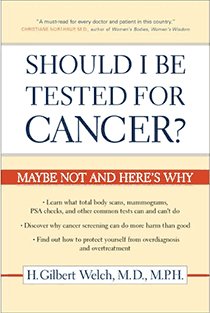Colon cancer prevention guide
STEP 5. Guard your immunity
Every cancer starts from a mutated cell. Ideally, your immune system strangles defective cells to death, so you get to live. The mutation of cells is common, takes place round-the-clock, affects everyone, and is accelerated as we age. The difference between those getting cancer, and those remaining cancer-free, depends on their immunity. Therefore, guarding and maintaining strong immunity is just as important as avoiding mutation-causing triggers.
Cancer, particularly colorectal, is commonly portrayed as an accidental disease that affects people who are down on their luck. This misconception (along with the usual misrepresentation about low-fiber and the high animal protein and fat connection) is so pervasive, that the Merck Manual tells doctors and patients alike that the oncogenesis (origins, mechanism) of colorectal cancer isn't known [link].

It isn't surprising. Since the real money is in drugs, not prevention, it pays not to know and to ignore these “mechanisms,” especially for drug-makers such as the Merck & Co.
The explosion of colorectal cancer incidence in the United States confirms their complicity if not outright conspiracy. Not so long ago the exact same textbooks were in near identical denial of the origins of lung cancer in smokers. What else is new?
You wouldn't, though, suspect a thing reading the non-stop stream of feel-good stories about the incidence of colorectal cancer retreating. In fact, all this is flagrant fabrication. Indeed, how can it be that over 150,000 people are diagnosed annually with colorectal cancer, while mortality is under 55,000? Or, how can it be that the colorectal cancer incidence was 22% higher in 2008 than it was in 2000, but the mortality was 5% less? And this is pretty much the case with most other cancers. And here is why:
Not so long ago most people affected by colorectal cancer died untreated, and that's what their death certificate reflected — cancer of this or that. Today almost all patients — rich or poor, insured or not — get treated with surgery, chemo, and/or radiotherapy, deferring in this way the appointment with their maker!
When the cancer victim finally succumbs to the metastases or complications related to the treatments, the final cause of death — stroke, cardiac arrest, pulmonary embolism, chest infection, kidney or liver failure, secondary cancer, or what have you — gets listed on the death certificate, not the initial colorectal cancer.
Unfortunately, most people fall for this deception — that the cancers stem from “bad genes,” or “bad luck,” and that preventative screening is the next best thing to beating the odds. That, pretty much, sets the trap for regular screening, and exposes people to even more risk.
 If you still question these risks, my objectivity, judgment, or qualifications, I recommend reading the book on the left. The answer to the question Should I Be Tested for Cancer
If you still question these risks, my objectivity, judgment, or qualifications, I recommend reading the book on the left. The answer to the question Should I Be Tested for Cancer? is quite self-evident from the subtitle: “Maybe Not and Here's Why!” Take my word for it — Dr. Gilbert Welch, M.D. plays nice using the adverb “maybe.”
That is why, in addition to all the prior steps, I recommend guarding your immunity with the same vigor you may be guarding your backyard from weeds or your car's underbody from rust. In return, your immunity will guard you from cancer.
Stronger immunity — not screening, not luck, not genes, or any other factor — explains why not all people exposed to the sun develop melanoma; why oral cancer doesn‘t affect all who chew tobacco; why not all women develop breast cancer; or why some people survived radiation exposure in Hiroshima and Chernobyl. Fundamentally, if you possess good immunity, up to a point your body can take some abuse and survive it.
Even if you are in an ultra-high risk group for colon cancer, and still get it, an optimal immune system may not stop the cancer cells from multiplying, but it may still envelop the resulting tumor in a non-penetrable shield. In this case, you may get away with the surgery needed to remove the resulting adenocarcinoma, while still retaining full colon function, and escaping the need for cancer-causing chemo or/and radiotherapies.
Here are the common sense steps needed to maintain good immunity without resorting to a voodoo:
— Age-appropriate nutrition. Good immunity starts from good nutrition. The opposite of good nutrition is malnutrition. I discuss both here (The Ingredients of Longevity Nutrition) and here (All that goodness gone to the rats). Improving digestion and the assimilation of essential nutrients will strengthen your immune system, delay the onset of aging-related degenerative diseases, and remove the dependence on potentially cancer-causing medicines. Not a bad thing too, particularly for your appearance, career, sex life, you name it.
— Recharge primary immunity. Phagocytosis a major function of the immune system used to remove cell debris, viruses, bacteria, and cancerous cells. It's action is based on the proper functioning of intestinal bacteria, and I discussed this subject in the Step 3. Restore Colon Ecology. Besides cancers, good immunity also protects you from cold, flu, and a ton of other infections that are just as deadly as cancer.
— Protect yourself from known cancer triggers. The triggers of colorectal cancer are analogous to the well-established triggers of other rampant cancers, The major ones — fiber, by-products of fiber fermentation, large stools, irregularity, dysbacteriosis — I have already identified in the previous step. The next step will review the lesser triggers, or, as some may call them, secondary risk factors.
— Slowdown the aging process. Chronological age is one variable you can‘t put into reverse, except by slowing down the physiological aging process through consuming an optimal diet, practicing mental hygiene, doing harm-free moderate exercise, and, ideally, living in a clean, stress-free environment. I'll discuss age-related considerations in the final step.
Yes, that's a lot of reading, studying, and adjustment to do. But, then, nowadays it takes twelve years of exemplary schooling, four years of good college, and several more years in the graduate school to make an above par living. So if you expect to beat the cancer odds without doing any homework, I can only wish you good luck!
Recommendations to consume more fiber, eat less fat, and get screened regularly are far more popular than my views because they offer simplistic, low-effort solutions. My cerebral recommendations, on the other hand, require study, visceral comprehension, and lifestyle changes, often significant. Not easy...
Not surprisingly, many people I respect have told me to my face — “keep it simple, stupid, and you'll get on Oprah,” which is a euphemism for “tell them what they want to hear, and you'll become rich and famous.”
Well, I don't get angry. I understand well what they mean, why they say it, and that they mean well. I wish I could make my approach “idiot-proof.” Alas, it doesn't work that way for the same reason an unarmed marine is more likely to escape unharmed in an encounter with an armed mugger than you or I.
But to become a marine, one must not only pass the rigorous basic training, but also undertake years of daily practice to turn defensive techniques into instincts. Ditto with health — if you want to live a long and healthy life, the habits of health (the title of one of my future books) must become “animal instincts,” and acquiring them requires a ton of study and a whole lot of practice.
As far as “getting on Oprah,” goes, studying Ms. Winfrey health history from her own site tells you that simplistic solutions don't buy you good health or normal weight, so not getting invited on her show will be her loss, not mine. Besides, I am happy to remain a “niche player” for the same reason Emeril Lagasse or Wolfgang Puck do not aspire to become chefs at McDonald's or Pizza Hut.
Konstantin Monastyrsky
